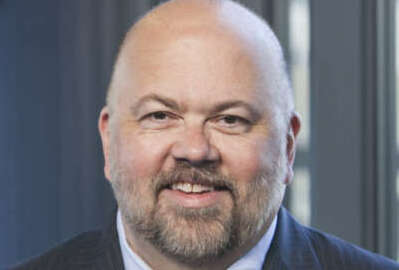

Jeff Neal, former CHCO at DHS, says that the new hiring authority included in the 2019 NDAA is not a bad idea.
This column was originally published on Jeff Neal’s blog, ChiefHRO.com, and was republished here with permission from the author.
On Monday, President Donald Trump signed the John S. McCain National Defense Authorization Act for Fiscal Year 2019 (NDAA). The NDAA is commonly used as a vehicle for changes that reach far beyond the Department of Defense. The 2019 NDAA includes provisions that are intended to make it easier for agencies to hire new talent. One that is getting a lot of attention is the authority to hire recent college graduates.
Is it likely that the new hiring authority will make a difference? Let’s start by looking at what the NDAA allows. It says: “The head of an agency may appoint, without regard to any provision of sections 3309 through 3319 and 3330, a qualified individual to a position in the competitive service classified in a professional or administrative occupational category at the GS–11 level, or an equivalent level, or below.” It goes on to place some limits on those appointments. Appointees must have a baccalaureate or graduate degree from an institution of higher education, apply for the position within two years of receiving the degree (two years after being discharged from military service for individuals who completed at least four years of military service), and meet qualification requirements for the job.
The number of appointments in each agency “may not exceed the number equal to 15 percent of the number of individuals that the agency head appointed during the previous fiscal year to a position in the competitive service classified in a professional or administrative occupational category, at the GS–11 level, or an equivalent level, or below, under a competitive examining procedure.” The director of the Office of Personnel Mangement has the authority to lower the limit “based on any factor the Director considers appropriate.”
That numerical limit is the reason I believe this new authority will not make much of a difference. If we look at hiring data from OPM’s Fedscope, we find that in fiscal 2017 (the last full year of data) the government made about 19,000 competitive service appointments to professional and administrative jobs at GS-11 or below. That would put the limit on the new authority at 2,865 new appointments governmentwide. Because the authority applies the 15 percent limit on an agency-by-agency basis, the actual number is likely to be much lower. When we look at individual departments and agencies, the numbers are not big. Commerce could hire about 150 people. Transportation could hire less than 50. Veterans Affairs would be limited to less than 150.
The new authority is not a bad idea. In fact, the number of recent college graduates who are hired is far too low. In the last quarter, the number of federal workers under age 30 was 148,921 out of a federal workforce of 2,075,006 (7.2 percent). The new authority is likely to result in more younger hires, although the fact that people graduate from college at all ages means the new hires are more likely to be younger, but could also be at any age.
If we really want to see improvement, we will need much larger numbers than this new authority is likely to generate. Agencies should use the flexibility to the extent they can. If they do, there is a good chance that the authority will be expanded in later years. If they do not use it (as often happens with new hiring authorities), the case for significant hiring reform will be weakened.
Jeff Neal is a senior vice president for ICF and founder of the blog, ChiefHRO.com. Before coming to ICF, Neal was the chief human capital officer at the Homeland Security Department and the chief human resources officer at the Defense Logistics Agency.
Copyright © 2024 Federal News Network. All rights reserved. This website is not intended for users located within the European Economic Area.


